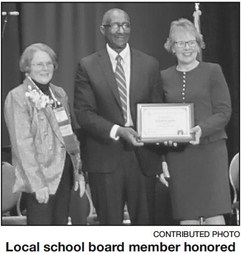County Board debates employee break policy


At a recent county board meeting, a discussion on Clark County personnel policies turned into a lively debate when it came to the matter of whether or not to allow county employee...


At a recent county board meeting, a discussion on Clark County personnel policies turned into a lively debate when it came to the matter of whether or not to allow county employee...